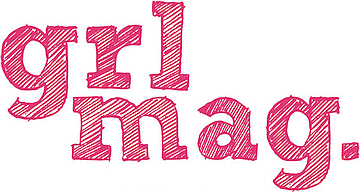
You’ve probably heard the saying “daddy’s princess” or “a daughter’s first love is her father.”
But, you’ve probably also heard the term prescribed to girls who don’t have a good relationship with their fathers, the infamous “daddy issues.”
What does it mean to have daddy issues? Though it’s hard to pinpoint, the term usually is from the basis of an absent or emotionally unavailable father. We can trace the idea from Sigmund Freud and his idea of the Oedipus complex. The Oedipus complex describes his proposed theory that a son is subconsciously competing with his father, due to his attraction to his mother. Creepy, I know.
Carl Jung also believed the same for girls and coined it the Electra complex. By extension, you probably have heard of the attachment style theory. From childhood, the relationship of children to their caregivers will greatly influence their attachment style in adulthood. Those who will have a secure attachment will in turn have a secure attachment in adulthood.
Of course, this extends to insecure attachment style as well—the inverse of a secure attachment. It can be divided into three categories: anxious-preoccupied, avoidant dismissive, and fearful-avoidant.
Insecure Attachment Styles
- An anxious-preoccupied attachment can center on the idea of the desire to be extremely emotionally close, with the fear of abandonment.
- An avoidant dismissive attachment typically downplays relationships and feels extremely self-reliant, avoiding deep relationships.
- A fearful-avoidant attachment typically has trust issues and maintains a distance due to a fear of rejection.
With that, we can assume that those who have “daddy issues” typically have an insecure attachment style, resulting in a pattern of behaviors that reflect this.
But it’s time we reflect on the real impact of “daddy issues.” It solely places the blame on the girl itself, and society fails to recognize that this pattern of behavior is rooted in a source of trauma and neglect. It’s no surprise that girls who did not have their emotional needs met as a child by a father figure, seek validation in their adult lives from men. They are seeking an emotional need—a wound—and should not be blamed for being hurt. Placing the blame on the girl or woman is misogynistic, and retracts the blame on the men who failed her.
Symptoms of Those Dealing with a Father Complex
- Dealing with patterns of possessiveness, protectiveness, and clinginess
- Interests in older men (to a more extreme degree)
- Need constant reassurance
- A pattern of being in unhealthy or abusive relationships
- Sexual promiscuity (to a harmful degree) to feel loved*
- *Women who do engage in regular sex should not be shamed for doing so, and should not be assigned such misogynistic terms because of their sex life. It should cause concern when it is actively harming their life.
- Idealizations of a partners
- Struggle to set boundaries
- Trust issues
Those with the perception that women with father complexes are “crazy” must recognize that their drive to continue these cycles stem from familiarity, bonded to a trauma that is recognizable and deemed as safe. Though those who deal with father complexes should be held accountable for their harmful actions toward others, the blame should be on those that failed them. These sets of behaviors are a reaction to complex trauma. By extension, men should learn to undo their toxic masculinity to avoid contributing to generational trauma. In doing so, they should not immediately jump the gun by flinging a reductionist phrase—especially those who are sex workers.
Not only is it misogynistic by belittling the feelings of women, but it also is extremely gendered. Both men and women can experience so-called “daddy issues,” and both can resort to patterns of self-destructive behaviors.
In addition, it demands a heteronormative idea that we all need fathers. Those without one can live and heal. Women are more than their relationships with their fathers.
At the end of the day, what’s the harm in treating women as human beings who need reassurance and emotional connection?
And those who are hurting always have the ability to heal, especially through the aid of therapy.
Women are not a stereotype and are incredibly resilient—rising above the ashes. It is not a joke and we should not throw such terms around with ease. We should make an effort to recognize trauma as it is, not reduce it to a moniker.
